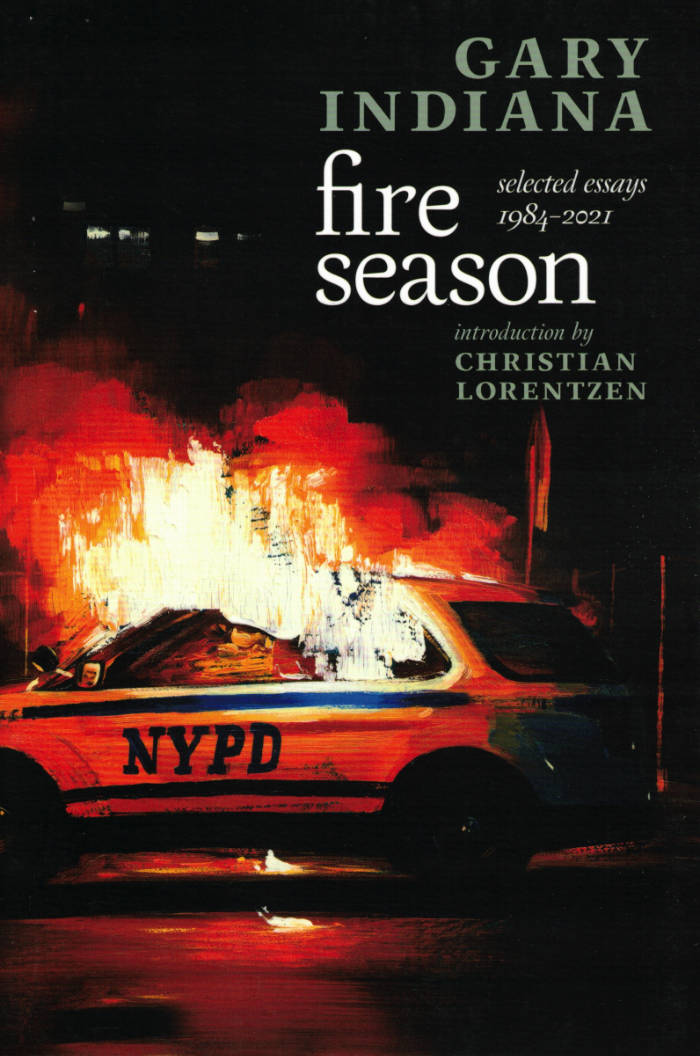
Fire Season: Selected Essays 1984-2021
Whether he's describing Tracy Emin or Warhol, the films of Barbet Schroeder ("Schroeder is well aware that life is not a narrative; that we impose form on the movements of chance, contingency, and impulse....") or the installations of Barbara Kruger ("Kruger compresses the telling exchanges of lived experience that betray how skewed our lives are..."), Indiana is never just describing.
Indiana champions shining examples of literary and artistic merit regardless of whether the individual artist or writer is famous; asserts a standard of care and tradition that has nothing to do with the ivory tower establishment; is unafraid to deliver the coup de grãace when someone needs to say the emperor has no clothes; speaks in the same breath-in the same discerning, insolent, eloquent way-about high art and pop culture. Few writers could get away with saying the things Gary Indiana does. And when the writing is this good, it's also political, plus it's a riot of fun on the page
GARY INDIANA is a novelist and critic who has chronicled the despair and hysteria of America in the late twentieth/early twenty-first century. From Horse Crazy (1989), a tale of feverish love set against the backdrop of downtown New York amid the AIDS epidemic, to Do Everything in the Dark (2003), "a desolate frieze of New York's aging bohemians" ( n+1), Indiana's novels mix horror and bathos, grim social commentary with passages of tenderest, frailest desire. In 2015, Indiana published his acclaimed anti-memoir, I Can Give You Anything But Love, following it up in 2018 with Vile Days, a collection of his art criticism for the Village Voice. Called one of "the most brilliant critics writing in America today" by the London Review of Books, "the punk poet and pillar of lower-Manhattan society" by Jamaica Kincaid, and "one of the most important chroniclers of the modern psyche" by the Guardian, Gary Indiana remains both inimitable and impossible to pin down.







